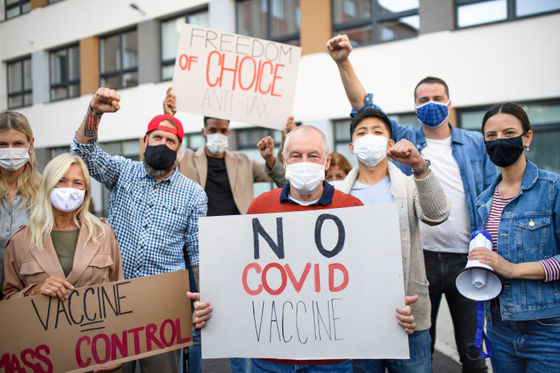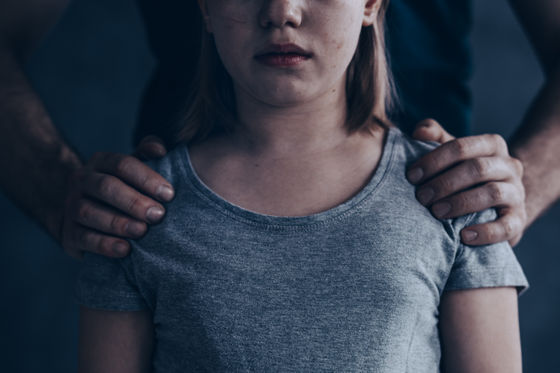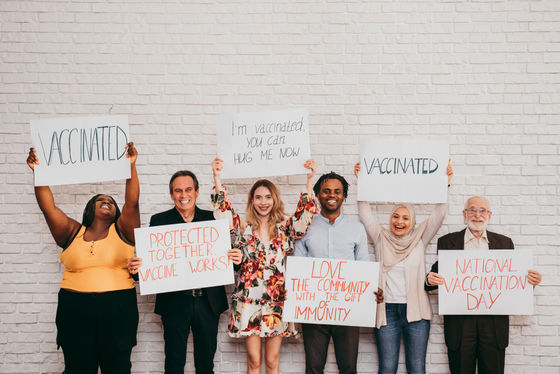Research shows that people who become anti-vaccination tend to have 'tragic histories such as child abuse or parental alcoholism,' and there is also a link to cognitive function

Anti-vaccination has
Deep-seated psychological histories of COVID-19 vaccine hesitance and resistance | PNAS Nexus | Oxford Academic
https://academic.oup.com/pnasnexus/advance-article/doi/10.1093/pnasnexus/pgac034/6553423
Vaccine resistance has its roots in negative childhood experiences, a major study finds
https://theconversation.com/vaccine-resistance-has-its-roots-in-negative-childhood-experiences-a-major-study-finds-180114
Anti-vaccine movements are also intensifying in New Zealand, with anti-vaccine demonstrations being held in front of Parliament Building in Wellington, New Zealand's capital, for about a month in February 2022, resulting in 250 arrests.

So a research team led by Richie Poulton, a psychologist at the University of Otago in New Zealand and director of
Specifically, the researchers surveyed 1,037 participants in the Dunedin study about their intentions to get vaccinated, and analyzed the results of the survey in combination with data on the participants' childhoods and lifestyles. The survey period was April to July 2021, just before the start of New Zealand's national vaccination campaign.
When the research team collated the survey results, about 13% of the respondents answered that they had no plans to get vaccinated. And when they compared the childhood lives of people who were resistant to vaccines with those who were not, they found that many of those who were resistant to vaccines had had adverse experiences in their childhood, such as being neglected, being poor, or having parents who were alcoholics.
Regarding these results, Poulton and his colleagues speculate that 'negative childhood experiences may lead to a lifelong distrust of authority and a belief that 'I can only rely on myself when it matters.''

The participants in the Dunedin Study, which began in 1972, were just around 50 years old at the time of writing, but the effects of their childhood experiences began to show at an early age. Surveys conducted when the participants were teenagers showed that they were more likely to falsely perceive themselves as being threatened by something, and as adults, the proportion of them experiencing mental health problems, including a penchant for conspiracy theories, increased.
This analysis also found that some people who were hesitant to vaccines had cognitive problems from childhood. Specifically, they were poor readers in high school and had low scores on tests of Japanese comprehension and processing speed. 'Anyone who has had cognitive impairments for many years should have difficulty comprehending complex health information. When this poor comprehension is combined with the extremely negative emotions that are common among people who are hesitant to vaccines, it may lead to a puzzling attitude toward vaccines for health care workers,' Poulton and his colleagues pointed out.
As mentioned above, in this study conducted in 2021, just before the vaccination campaign in New Zealand, 13% of respondents said they would not get vaccinated. This means that more than 10% of people refused to get vaccinated, but the country's vaccination rate as of 2022 is high at 95%. The reasons for this are thought to be broadly divided into the following four points.
- Excellent leadership and clear communication from the Prime Minister and the Minister of Health.
- Capitalizing on early fears regarding the arrival of the Delta and Omicron strains of COVID-19.
- Widespread and controversial vaccination mandates and border closures.
- The government has delegated responsibility for vaccinating high-risk groups, such as

In particular, the fourth point, the community-led approach, is seen as having 'helped build the high level of trust necessary for people to make decisions about vaccination by utilizing detailed knowledge that is tailored to their individual needs.' It is believed that such compassionate responses to vaccine hesitancy ultimately led to a high vaccination rate.
Based on these findings, Poulton et al. stated, 'It is unlikely that COVID-19 will be the last pandemic. Therefore, in order to prepare for the future, we recommend that schools teach about viruses, their infection mechanisms, and vaccines. Early education will help people understand the need for infection control measures such as hand washing, wearing masks, social distancing, and vaccination, and will help prepare for the next pandemic.' They expressed the view that early education is important in eliminating vaccine hesitancy that stems from negative experiences in childhood.
Related Posts:
in Note, , Posted by log1l_ks







